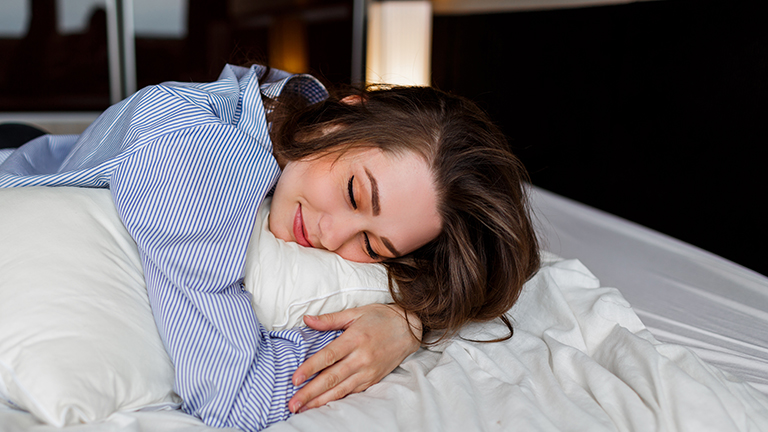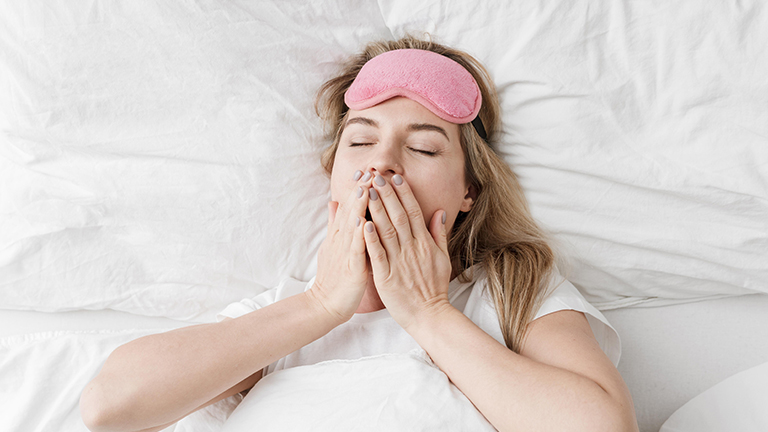In today’s fast-paced world, many people struggle with getting a good night’s rest. Stress, overuse of technology, irregular schedules, and unhealthy habits often make it hard to fall asleep quickly. Sleep is essential for mental clarity, physical health, and emotional balance, yet millions of people rely on medication for relief. The good news? You can learn how to fall asleep fast without medication by making simple lifestyle changes and following natural sleep remedies that are proven to work.
The Dangers of Relying on Sleep Medication
Prescription and over-the-counter sleeping pills may seem like a quick fix, but long-term use can cause side effects such as dependency, grogginess, memory issues, and even reduced sleep quality. Instead of masking the problem, it’s better to address the root causes naturally. By adopting natural ways to cure insomnia and improve your bedtime routine, you’ll enjoy deeper, healthier sleep without the risks.
Best Natural Ways to Fall Asleep Fast
If you often lie awake wondering how to sleep better at night naturally, try these proven methods:
- Stick to a consistent sleep schedule.
- Limit screen time at least one hour before bed.
- Create a relaxing evening routine.
- Reduce caffeine intake after noon.
- Practice relaxation techniques for sleep like deep breathing and meditation.
- Keep your bedroom cool, dark, and quiet.
- Exercise regularly but not too close to bedtime.
Relaxation Techniques (Breathing, Meditation, Yoga)
One of the most effective ways to relax before bed is to practice relaxation exercises. Deep breathing helps lower your heart rate, meditation calms racing thoughts, and gentle yoga stretches relax the body. These methods naturally trigger your body’s sleep response, helping you fall asleep faster naturally without medication.
Creating the Perfect Sleep Environment
Your bedroom plays a big role in how quickly you fall asleep. To build the best bedtime routine for sleep, focus on these changes:
- Keep the room cool (around 65°F / 18°C).
- Use blackout curtains or a sleep mask.
- Reduce noise with earplugs or a white noise machine.
- Choose a supportive mattress and pillows.
- Keep electronics out of the bedroom.
This type of sleep hygiene tip makes it easier for your body to associate your bedroom with rest, not stress.
Evening Routine That Prepares Your Body for Sleep
An evening routine signals your body that it’s time to wind down. Avoid work, heavy meals, and stressful conversations before bed. Instead, take a warm shower, read a book, write in a journal, or sip a calming tea. These small rituals are lifestyle changes for better sleep that train your brain to relax.
Foods and Drinks That Promote Sleep Naturally
What you eat and drink directly affects how quickly you fall asleep. For home remedies for better sleep, try these natural options:
- Herbal teas like chamomile, lavender, or valerian root.
- Magnesium-rich foods such as almonds, spinach, and bananas.
- Warm milk or golden turmeric milk.
- Tryptophan-rich foods like turkey, oats, and pumpkin seeds.
At the same time, avoid alcohol, nicotine, and caffeine before bed.
Lifestyle Changes That Improve Sleep Quality
Learning how to improve sleep quality naturally often comes down to daily habits. Regular physical activity, exposure to natural daylight, limiting naps, and reducing evening stress all play a role in restoring your sleep cycle. Over time, these habits create long-lasting improvements.
Home Remedies for Better Sleep Without Pills
Natural sleep hacks without medication have been used for centuries. Some effective home remedies include:
- Aromatherapy with lavender or sandalwood essential oils.
- A warm bath with Epsom salts to relax muscles.
- Listening to calming music or nature sounds.
- Practicing gratitude journaling before sleep.
How to Calm Your Mind and Reduce Nighttime Anxiety
Anxiety is one of the biggest barriers to falling asleep quickly. If your mind races at night, try:
- Writing down worries before bed.
- Practicing mindfulness meditation.
- Progressive muscle relaxation techniques.
- Limiting news and social media in the evening.
These ways to reduce anxiety before bed allow you to quiet your thoughts and drift into sleep naturally.
When to Seek Professional Help for Sleep Problems
If you’ve tried these natural sleep remedies and still struggle to sleep for more than three weeks, it’s important to consult a doctor. You may have sleep apnea, chronic insomnia, or another medical condition that requires professional treatment.
Conclusion:
Learning how to fall asleep fast without medication takes patience and consistency, but the benefits are worth it. By creating a calming bedtime routine, improving your sleep environment, eating the right foods, and practicing relaxation techniques, you can train your body to sleep better naturally. These long-term healthy habits will not only help you fall asleep faster but also improve your overall well-being.


